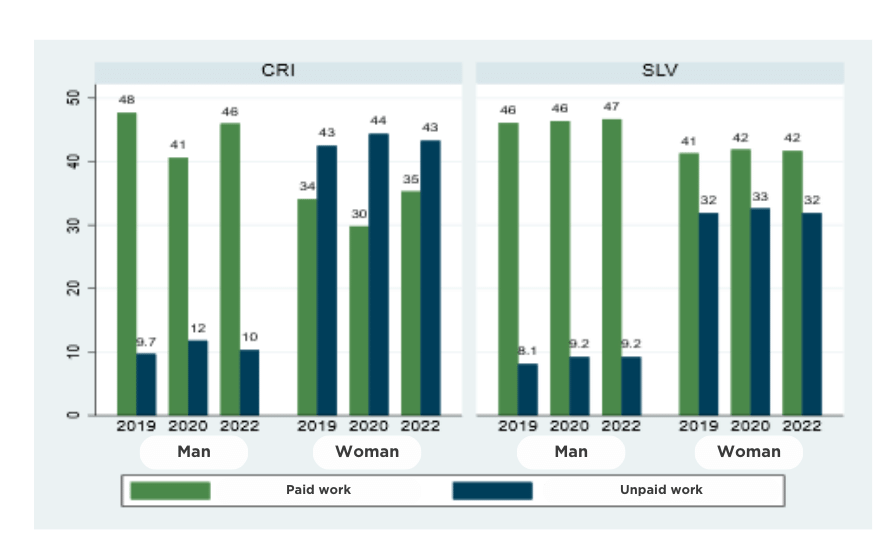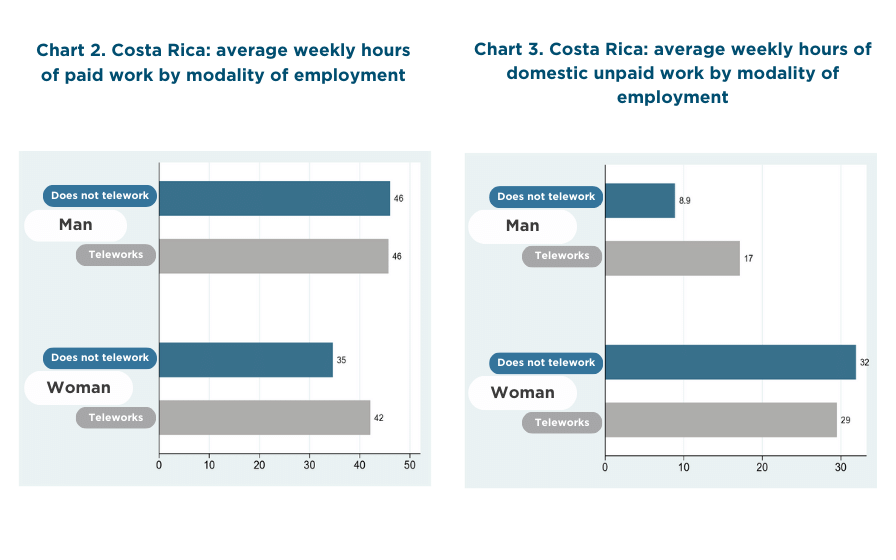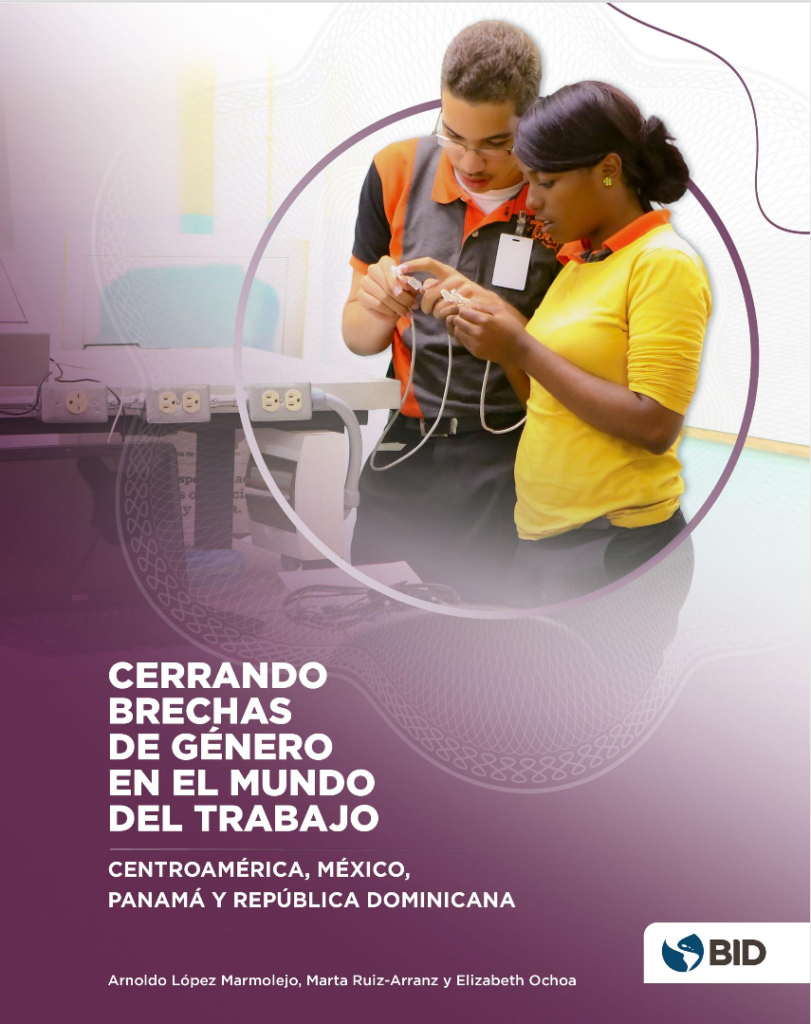The new dynamics of teleworking have left a deep impression on our lives. This has altered the way we work and distribute responsibilities at home. Events that generate changes in employment, such as the COVID-19 pandemic, have impacted gender roles, paid and unpaid work.
A data analysis of Costa Rica and El Salvador reveals recent transformations in the gender gap regarding the use of time. Historically, women have carried the main burden of household work. Men, on the other hand, have participated more in paid work outside the home. Data on average hours spent on paid and unpaid work in Costa Rica and El Salvador during 2019 support this traditional division. In both countries, women’s hours of unpaid work were four times those of men, or more.
However, pandemic containment measures temporarily eliminated spatial and gender differences in time use. In addition, school closures and limited access to child care increased the demand for unpaid work.
Greater participation, same inequality
In the last three years, men participated more in household work, although inequalities persist.
Encouraging data indicate a slight reduction in the gender gap in unpaid housework during the year 2022. Although women continue to assume a disproportionate burden, there has been an increase in men’s participation in these tasks. In Costa Rica, for example, men increased their contribution to domestic work by 6% between 2019 and 2022. Women did so at a rate of just 2%. In El Salvador, the increase in male participation in domestic tasks was even more notable, reaching 14% (figure 1).
Despite these advances, unequal co-responsibility in household chores still persists. In 2019, working-age women with children dedicated, on average, 4.2 times more hours per week to unpaid domestic work than men. This reality was similar in both Costa Rica and El Salvador. While this gender gap decreased to 3.8 in 2022, it still represents a significant burden for women.
Figure 1. Average hours of paid and unpaid work per week

Teleworking: a key factor in bridging the gap
Telework has emerged as a key factor in reducing these gender gaps. In Costa Rica, household survey data includes information on telework. There, it was observed that mothers who worked from home in 2022 increased their time dedicated to paid work, approaching the level of hours worked by men (Figure 2). This phenomenon suggests that teleworking can contribute to greater gender equality in terms of paid work by offering women the possibility of devoting more hours to paid jobs. In addition, it is encouraging to note that men who telework have also increased their contribution to unpaid domestic work, outnumbering men who work outside the home by almost twice as much (Figure 3).

Balancing paid and unpaid workloads is critical
Despite advances in women’s labor participation, significant gaps persist in the labor market and in the distribution of work in the household. Increasing women’s participation in the labor market would have a positive impact on family income and the economy in general. To reduce the gender gap in the use of time, it is essential to encourage greater co-responsibility in the household.
Government policies, such as parental leave, subsidies and a greater care network, and other labor flexibility measures, such as teleworking, can play a crucial role in supporting families in reconciling paid and unpaid work.
In summary, the pandemic and the implementation of telework have generated significant changes in the distribution of paid and unpaid work, slightly reducing the gender gap. Despite these advances, there is still much work to be done to achieve true equity in the distribution of time and responsibilities in the home. Telework has proven to be a powerful tool for advancing gender equality. However, it is essential to continue implementing policies that promote co-responsibility and the empowerment of women in the work and domestic spheres, and thus build a more equitable and just future for all people.



Leave a Reply